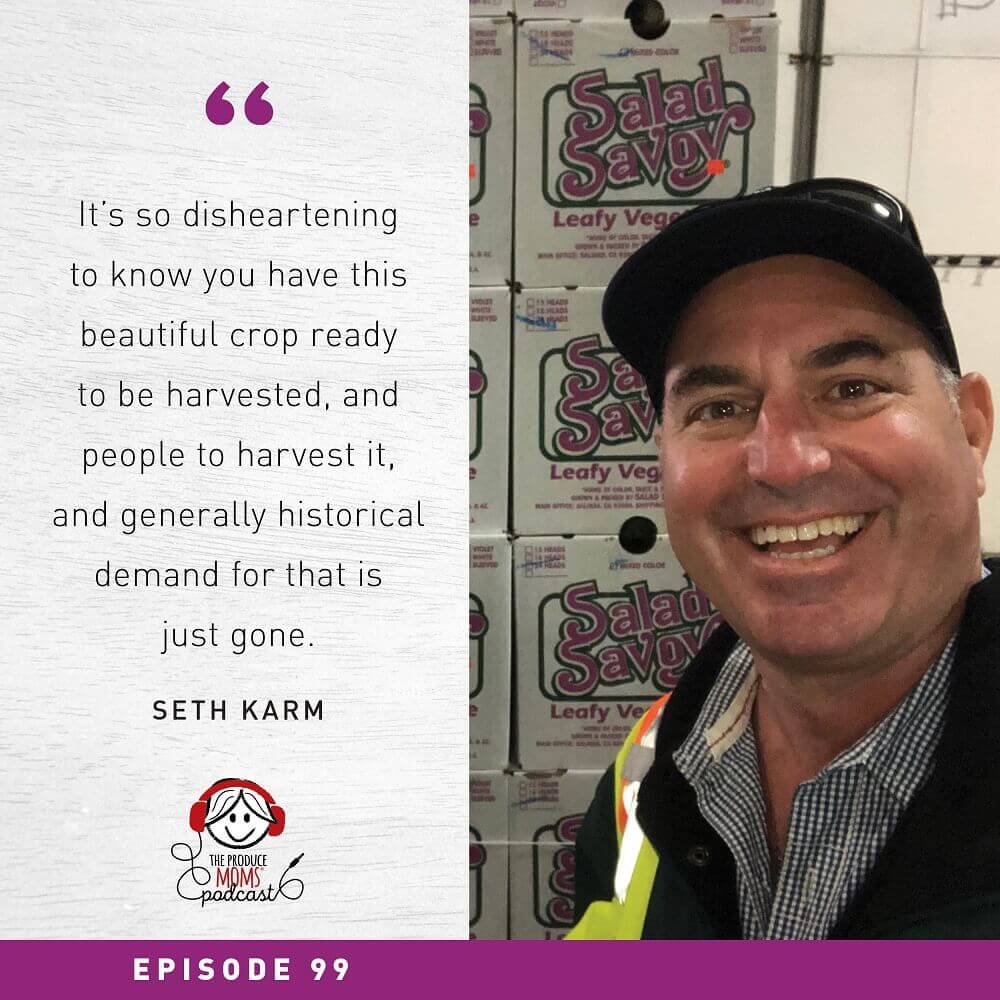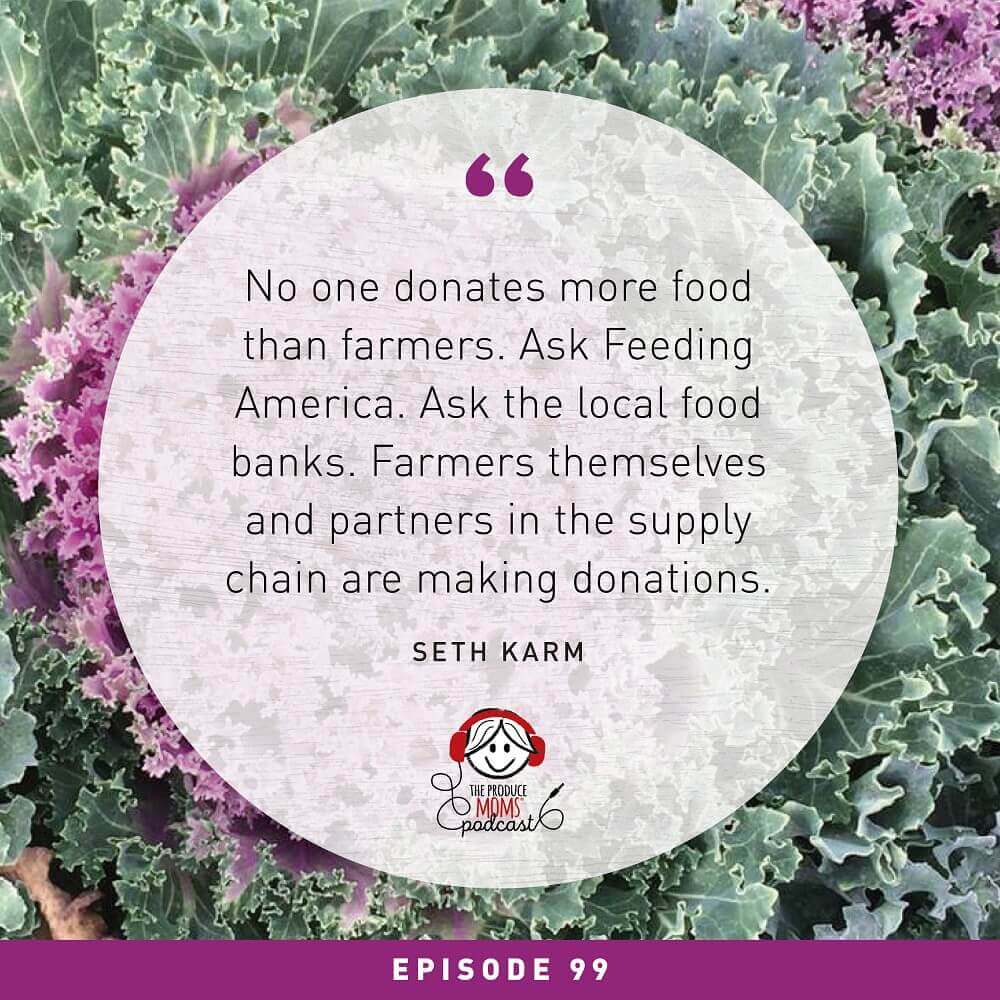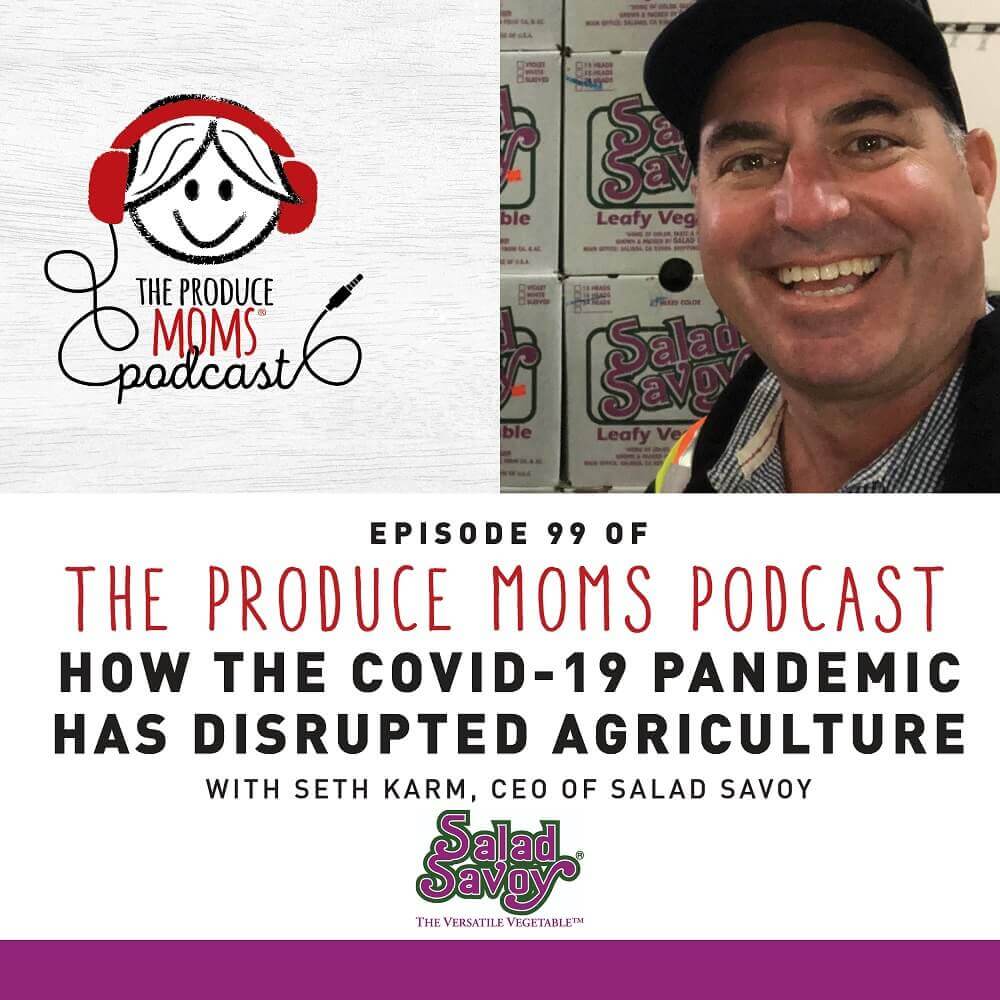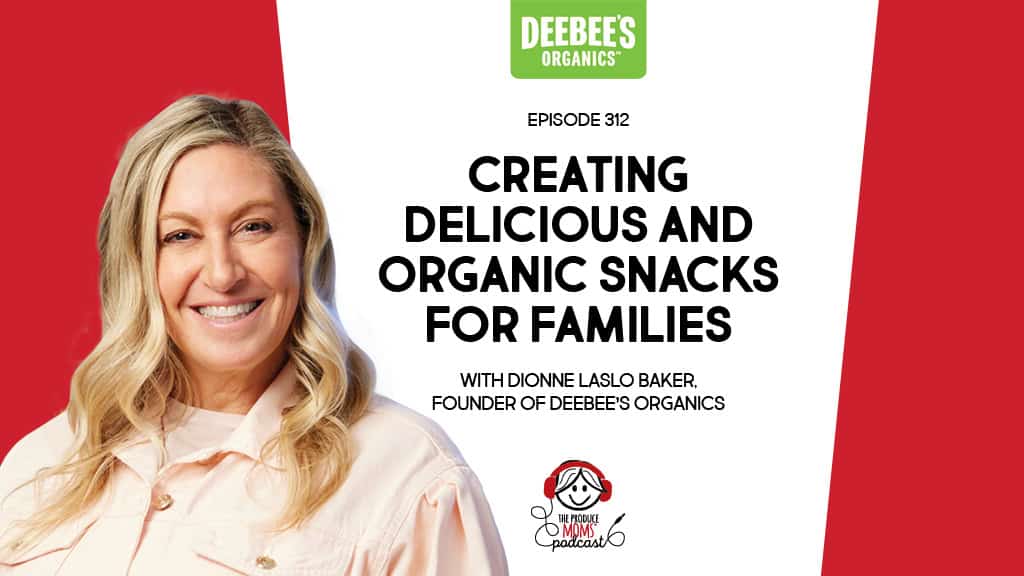Episode 99: Seth Karm
May 20, 2020, Updated Jun 11, 2021
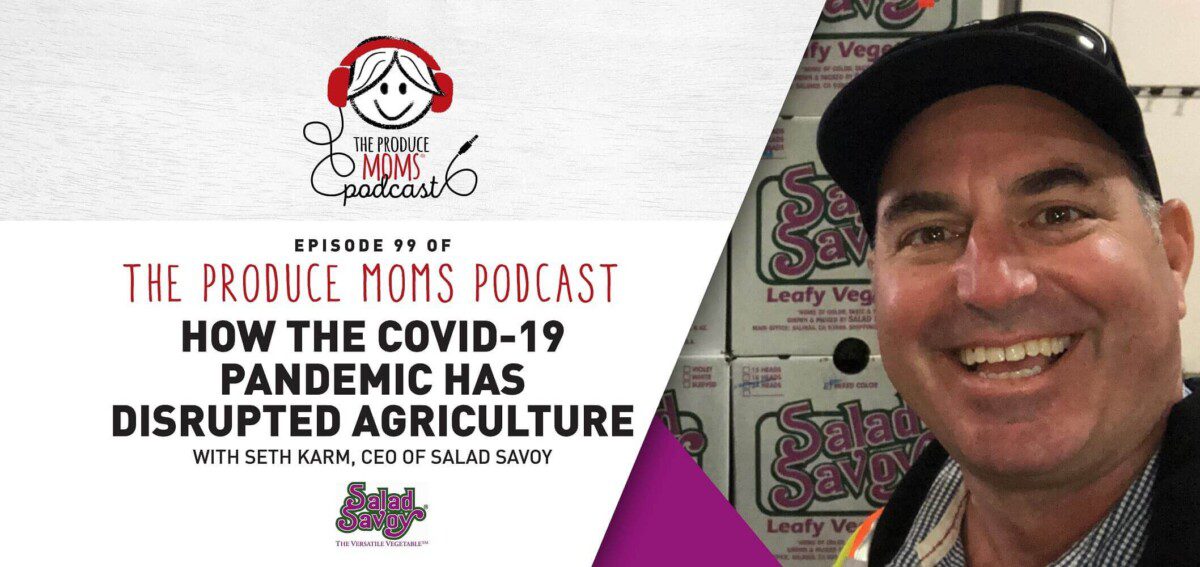
This post may contain affiliate links. Please read our disclosure policy.

Seth Karm is the CEO of Salad Savoy. Salad Savoy is the brainchild of founder John Moore. After a trip to Sweden, where Moore was blown away by the enticing colors and flavors of the produce grown there, he returned and developed an entirely new vegetable! Since 1984 Salad Savoy has led the way in producing unique, vibrant vegetables that young and old enjoy; as they maintain their focus on color, taste, and nutrition.
Karm has been a longstanding partner of The Produce Moms. He is a business partner, colleague, mentor, and most of all friend. As a member of the produce supply chain, he offers great insight into how the current pandemic has affected the produce industry.
The world [of produce] changed overnight
March 11th, 2020 is a day that will be marked on our memories, and probably in future history books. It was on this day that the WHO declared COVID-19 a worldwide pandemic, and life as we knew it screeched to a halt.
Grocery staples flew off the shelves and the doors of so many of the businesses we know and love were locked, boarded, and abandoned.
Everyone has been affected by the current crisis, but we would be remiss to not take an opportunity to share with you how your produce supply chain has been affected, and highlight the resiliency, perseverance, and community of an industry that refuses to be defeated by this hardship.
When supply becomes so much greater than demand
On March 11th, as our world shifted by the hour, Karm was in Yuma checking on the Salad Savoy crops that had been growing through the winter season. He shared how beautiful they looked with all of their vibrant colors. Crop supply had been bolstered to prepare for the rise in purchase for Easter celebrations across the country.
Easter celebrations that would not happen this year, as families and friends were forced to celebrate quietly at home in isolation.
Overnight, demand for Salad Savoy crops, and produce around the country was drastically reduced, orders being reduced or cancelled.
“The events our American farmers have endured in such a short amount of time with no notice leaves me without words.” – Lori Taylor (26:00)
In one week, American farmers experienced $6 billion dollars of loss.
In the midst of all of this loss, there were voices of uproar as pictures of “wasted” crops were uploaded onto the internet.
Photos of crops dumped, plowed over, tossed away and left to rot, urging people to take a stand for something so “unjust” as millions of people in the world are undernourished.
People scoffed that farmers would waste so much produce as people around the world suffered from starvation, including individuals experiencing hunger in our own neighborhoods around the US.
Why Was So Much Food “Wasted?”
So, why was food left to rot, instead of being donated?
There are a few different reasons.
The pictures fail to show the whole story
Those who are frustrated with waste, fail to recognize the amount of food that was donated by farmers.
Salad Savoy donated 100,000+ units to a food bank. Farmers around the country flooded local food banks with produce that no longer had a place to go. There were so many shippers bringing truckloads that some food banks eventually had to turn them away. The supply overwhelmed the demand.
At the end of the day, farming is a business, and the livelihood of the farmer
Many forget that produce is more than just a staple in our fridge, it is the livelihood of the farmer and the other individuals on the supply chain.
When the demand is gone, oftentimes it doesn’t make sense to harvest, cool, and transport a product. At each of these stages there is a cost of both materials and labor. Following through with all of these steps would create a massive loss for the farmer, who is already navigating decline in demand for their product.
“We want healthy people and we’ve got food in the field, but we can’t afford to pack that up for free or we’d be broke in six months” – Seth Karm (16:48)
How is the Produce Industry Coping?
Increasing the standard of safety
Karm has assured us that safety has always been the top priority at Salad Savoy.
As food is harvested and prepared for transport, the utmost measures are being taken to ensure that food is safe for consumption. It is a strict operation with regular sanitation, PH tests of the water supply, and regulations for workers and equipment.
If there has been any doubt in your mind, you can rest assured that you don’t need to worry at all about food from certified shippers. Salad Savoy is a smaller operation that employs the strictest guidelines, and a good indication of the measures that are being implemented by certified shippers all over the country.
“Food safety has always been the ultimate standard and goal within American agriculture. We have always worked to raise healthy food.” – Lori Taylor (23:33)
Partnership with the government
As we all work to find our footing and adjust to a new normal, initiatives are being created to help the produce industry survive and find a new way to thrive.
The USDA recently introduced a new program that will allow the US government to buy produce from farmers. The health and nutrition of our population is more important now than ever, and it is incredible to see how the government is stepping in to join with farmers.
Competition becomes community
Perhaps the brightest spot in all of this chaos is the community that is popping up in unlikely places. As our worlds have grown smaller, community has gotten bigger. Links of the produce chain have started working with their competitors – (for example sharing trucks that would have been half empty), working together to stay afloat and keep the supply chain going.
We all want restaurants to be operational again. We all want to go back to some semblance of normalcy. We’re all in this together, and it’s together that we will all make it through.
In this time of so much uncertainty Karm encourages us to, “embrace the people around you. Embrace your competitors. Embrace your customers. We’re all going through this together, and we’re going to be a lot stronger for it.”
How to get involved
- Join The Produce Moms Group on Facebook and continue the discussion every week!
- Reach out to us – we’d love to hear more about where you are in life and business! Find out more here.
If you liked this episode, be sure to subscribe and leave a quick review on iTunes. It would mean the world to hear your feedback and we’d love for you to help us spread the word!
Previous episodes you may enjoy
- Episode 98: How to Snack Intentionally with Dr. Wendy Bazilian, Ambassador for California Walnuts
- Episode 97: The Magic Solution for Mealtime with Monica Salhotra and Allie Shanholt, Co-founders of Do Anything Foods
- Episode 96: Growing Organic Produce for a Greater Purpose with Mayra and Daniella Velazquez de León, President and CEO and Logistics Manager of Organics Unlimited
- Episode 95: Celebrating Earth Day with Janis McIntosh, Director of Marketing, Innovation, and Sustainability at Naturipe Farms
- Episode 94: Important Facts About COVID-19 and the Produce Industry with Ashley Nickle, Retail Editor for The Packer Newspaper and Editor in Chief for PMG
